for a while now I've tried to solve the decreased speed issue in my Access application when opening a print preview of certain reports. I've noticed that the slow reports have one thing in common - long, nested if clauses. I tried to search the internet for an answer for this issue, but some of the solutions do not apply to Access VBA or they just aren't possible to implement in the case of my application.
I was wondering if there are some commonly known ways that are used in order to avoid if clause monsters?
EDIT: A snip of code - it mostly handles the structure of the report based on certain conditions.
If (strCcDocNumber <> vbNullString) Then
Dim strUpperPart As String, strLowerPart As String
IDModule.placeIDStringsToPrivateVariables strCcDocNumber, ", "
strUpperPart = IDModule.returnUpper()
strLowerPart = IDModule.returnLower()
txtIDs = strUpperPart & vbCrLf & strLowerPart
Else
txtIDs = " " & vbCrLf & " "
End If
If (strOrderNumber = IO_OrderNumber.OrderNumberCode & "12345") Then
txtIDs = txtIDs
txtIDSpec1 = ModuleIDSpec1.getIDSpec1
txtIDSpec2 = ModuleIDSpec2.getIDSpec2
txtIDSpec1.Height = 330
txtIDSpec2.Height = 330
txtUpperLower = "- Ex" & vbCrLf & "- Ex2" & vbCrLf & vbCrLf & "- Ex3"
On Error Resume Next
For Each c In Me.Controls
If (c.Tag = "IDSpec2Table" Or c.Tag = "IDSpec1Table") Then c.Height = 0
If (c.Tag = "IDSpec2Table" Or c.Tag = "IDSpec1Table") Then c.Visible = False
If (c.Tag = "IDSpec2Table" Or c.Tag = "IDSpec1TableExtra") Then c.Height = 0
If (c.Tag = "IDSpec2Table" Or c.Tag = "IDSpec1TableExtra") Then c.Visible = False
If (c.Tag = "IDSpec2Texts" Or c.Tag = "IDSpec1Texts") Then c.Visible = True
If (c.Tag = "IDSpec2Texts" Or c.Tag = "IDSpec1Texts") Then c.Height = 330
If (c.Tag = "IDSpec2Texts" Or c.Tag = "IDSpec1TextsExtra" And ModuleTarget.TargetGroup <> "23C") Then c.Visible = True
If (c.Tag = "IDSpec2Texts" Or c.Tag = "IDSpec1TextsExtra" And ModuleTarget.TargetGroup <> "23C") Then c.Height = 330
'+ many more tags
Next
On Error GoTo 0
txtIDSpec1.Visible = True
txtIDSpec2.Visible = True
If (txtIDSpec1 = vbNullString And txtIDSpec2 = vbNullString) Then
txtIDSpec1.Height = 0
txtIDSpec2.Height = 0
txtIDSpec1.Visible = False
txtIDSpec2.Visible = False
End If
Else
'+a lot more similar conditions
EDIT: I remembered which if statements were the most troublesome ones. I think you can't change these ones into select cases or ElseIf statements, because all of the conditions need to be checked...
It goes like this:
If (condition) Then
Do this
If (differentCondition) Then
Do this also
If (completelyDifferentCondition) Then
Do this as well
Else
Do this instead
End If
End If
Else
If (yetAnotherCondition) Then
Do this
Else
Do this instead
End If
End If
